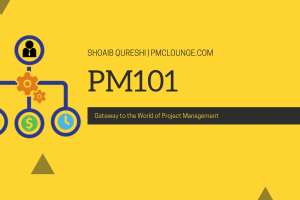
Who can apply for PMP® Certification?
Taking on any kind of PMP® certification is something that, for many people within the project management industry, is going to be essential to your professional progress. Not only is this an immensely powerful solution for making sure that you can change and improve your professional position, but it’s going to be one of the main steps that you take to making project management a career for your lifetime.
However, knowing who can apply for PMP® certification can help you avoid a lot of wasted time and effort. You might not be eligible, meaning that you can spend more than a fair amount of time stressing and messing around for no good reason!
To help you avoid making that mistake, we recommend that you take a look at the following applications for PMP® certification. This should help you understand whether or not you are likely to be eligible to get involved.
Educational Experience
For a start, most of the people who can apply for PMP® certification will need to hold a high school diploma. On top of that, if you have a four-year degree, then you can make sure that you have a much less reduced level of requirement for entry.
For example, those on just a high school diploma will need to show they have at the least five years of project management expertise to take their PMP® certification. This means spending at least 7,500 in charge of directing a project and managing it. Should you fail to do this, it can leave you in a bit of a bind!
Unfortunately, if you have no high school diploma, you cannot take part in a PMP® certification program. Without the right educational credentials, regardless of experience, you will not be accepted into any certification programs, unfortunately.
With a degree, though, you need to only show 4,500 hours of working expertise – or 36 month/3 years of experience. This obviously greatly reduces the amount of work that you need to put in to make sure you have a chance to get your PMP®.
Working Experience
However, the kind of experience that counts is quite specific. For example, you might not have been labelled the ‘manager’ of a project, but you took on just about every aspect of management that would usually be looked at. For that reason, it’s about looking at what you did rather than what your title was – if you were the de facto leader without the title, then you will eligible.
If you were ‘project manager’ and spent no time managing, though, it won’t count towards what. It does not matter if people called you ‘boss’ or ‘gaffer’ on the job – it’s about making sure that you took on the tasks and skills involved within project management.
For this reason, you should find it much easier to really change and improve your overall position. From being in charge of obtaining acceptance of providing feedback to other parties, your activities and actions matter more than the title.
With this in mind, you should find it a fair bit easier to build up a pathway to success. It takes a lot of time and effort, but it’s something that you should almost certainly look to ensure that you are going to be eligible to take part in – it could be the catalyst to major change in your professional life.



